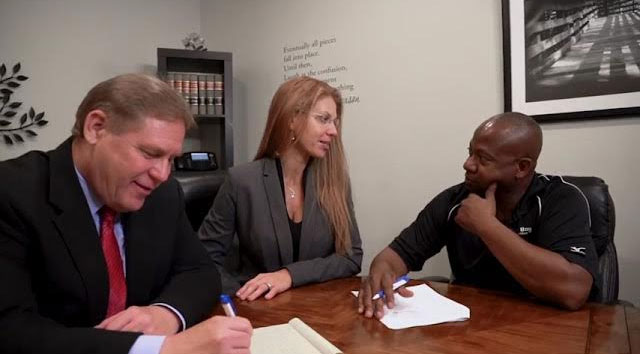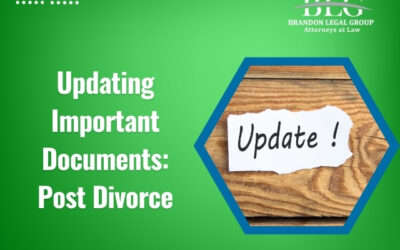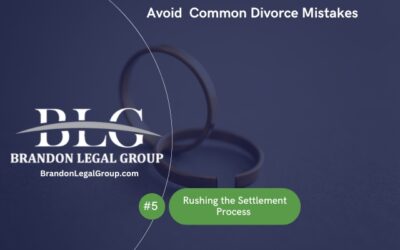Brandon Family Law & Divorce Attorney
We’ve Got You Covered!
Whether you are looking for a divorce, or have a final judgment that needs tweaking our experienced family law attorneys are here to help. Contact us today to schedule your free consultation.
Our Promise

Providing enthusiastic legal counsel with confidence, integrity, and compassion.
We promise to protect you and your family through life’s many legal challenges.
Our focus is on your family.
When your family law needs are divorce, custody, child support, alimony, or custody related, we’ve got you covered.
When your family law needs are Estate Planning, Probate, civil lawsuits, or even criminal matters, we’ve got you covered.
We promise caring and vigorous legal representation while respecting your time and wallet. You deserve the highest quality representation possible, and we offer that legal support and personal attention.
We've Got You Covered
With These Family Law & Divorce Services

Divorce Attorney

Child Custody

Child Support

Alimony

Military Divorce

Collaborative Divorce

Same-sex Divorce
BRANDON LEGAL GROUP, WE’VE GOT YOU COVERED (813) 902-3576
CALL OR CLICK TODAY TO SCHEDULE YOUR FREE CONSULTATION!
Let's start getting to know each other. The next step is a no-cost initial consultation.
We'll review your situation. At the same time, you have a chance to evaluate Brandon Legal Group without investing a penny.
From there, we'll formulate a legal strategy and provide you with a transparent estimate of fees to protect you and resolve your legal situation.
Divorce Attorneys
Divorce is a sensitive issue and is rarely simple. Divorce can be devastating for families and is filled with pressing issues such as child support and custody, home ownership, asset division and alimony. Our divorce attorneys have experience in courtrooms throughout the Greater Tampa Bay Area, and across the State of Florida. When you are experiencing an emotionally charged and legally challenging time, you need someone you can trust on your side. Our attorneys are here to provide you with the legal guidance and support you need.
Divorce can involve some difficult decisions. It’s hard to make the right choices without being fully informed. We will encourage you to think about a variety of outcomes pertaining to your divorce including: property division, alimony and child support. It’s important to us that all of our clients understand their options and have considered all the possible outcomes of their individual matter.

Child Custody
Divorce, separations, or single parent situations often result in bickering regarding where the child will live and how much time each parent will spend with the child. Well written Parenting Plans help govern this portion of the parent’s separation and often become the basis for contempt down the road. Determining what is best for the child is paramount although it is rare that the parents agree. This is where having an experienced attorney assist you along the way becomes vital in receiving the best outcome for your child.
Child Support
Divorcing or separating when you have kids can be difficult for the whole family. Your children might feel that their lives are disrupted and their world is changing. Along with the questions of custody and visitation, you are likely to face a number of financial issues. Getting divorced might mean finding somewhere new to live, and having a lower income. Child support is money paid from one parent to another for the purpose of assisting with the financial burden of raising a child. These funds are some of the most heavily contested items in many divorces, separations, or single parent situations.
Dealing with child support can be stressful and upsetting. We recognize that it’s a difficult matter to handle, which is why we are here to help. We will reassure you throughout the process of determining, modifying, or enforcing a support order.

Alimony
Dissolving your marriage often means a change in financial circumstances for one or both parties. Alimony may be awarded to a party in order to help maintain a certain standard of living. Some reasons for this include but are not limited to being the lower wage earner or being a stay-at-home parent.
Our experienced attorneys can advise you on the entire alimony process including possible payment amounts, durational alimony, or permanent alimony. When an agreement cannot be reached, the court will decide if alimony is necessary and specify an amount.
Military Divorce
Every divorce is different. There are issues that arise in certain cases of divorce that may not be necessary to address in another. When one or both spouses are in the military, there may be implications that become far more difficult to settle. Active deployments and military retirements are just a few of the areas that may need to be addressed when pursuing a divorce within a military family. Our attorneys are ready to provide military members or their spouses the experienced representation they need.
Your marriage did not need to occur in Florida in order to be divorced in Florida. If you have lived, or been stationed, in Florida it could be possible for you to file for divorce in the state. One of the benefits of divorcing in Florida is that you can obtain a no fault divorce. This means that neither party needs to have done anything in particular to warrant the divorce.

Collaborative Divorce
Divorce can be an emotionally trying process, but it doesn’t have to involve a bitter fight. Thanks to collaborative divorce, you can dissolve your marriage more quickly and efficiently. You and your spouse could be divorced in a faster, less costly manner with minimal animosity. Our trained collaborative divorce attorneys can help you decide if this is the right choice for you.
As the name suggests, the aim of collaborative divorce is for you and your spouse to work together. All of the questions associated with a traditional divorce will be answered with a collaborative divorce. The process avoids cultivating a “me against them” attitude. Instead, you both approach the divorce recognizing that you have the same ultimate goal: to remain amicable. It avoids any decisions motivated by spite, bitterness, or anger. At the beginning of a collaborative divorce, both parties and their attorneys will sign a document. It confirms that you will work together to make decisions for the divorce to be finalized.
Same-sex Divorce
In 2015 legal recognition of same-sex marriage in Florida created a new reality, same-sex divorce. A same-sex relationship can come to an end just like any other. It is imperative to recognize the issues and complexities involved. In the state of Florida, divorce is treated the same for same sex couples as any other couple. It is however, important to recognize the issues involved. We are able to acknowledge all the issues that are the same as any other marriage as well as the areas where there may be subtle differences.
Along with same-sex marriage, same-sex divorce is still relatively new. There were previously some issues about who could be granted a same-sex divorce in Florida. Now anyone married in Florida or another state can seek a same-sex divorce. Our experienced attorneys are up to date on recent events within the community and will support you through this troubling time.
Frequently Asked Questions
- What are grounds for Divorce in Florida?
Florida calls divorce a “dissolution of marriage”. Florida is a “no fault” divorce state, which means that spouses only need to tell a court that the marriage is “irretrievably broken” in order to get a divorce. Some other states call this “irreconcilable differences.”
In this case, either spouse may file for the dissolution of marriage.
- What can I expect to lose in a Divorce?
Florida is an “equitable distribution” state, which means that courts will divide property in a way it believes to be fair, which is not necessarily an equal split.
The family law and divorce attorneys at Brandon Legal Group will work with you to protect your assets as much as possible in your divorce proceeding.
- Will I have to pay Alimony / will I receive Alimony?
Alimony is no longer a forgone conclusion.
There are several factors that will determine whether or not a judge will award alimony. These range from, the duration of the marriage, to each spouses ability to support themselves and/or their “capacity” to support themselves outside of the marriage.

Debunking Florida Divorce Myths
Divorce is always expensive.
Both spouses’ reasonableness affects the cost of divorce. Sending five pages of angry emails and copying your attorney may be ineffective other than venting; you pay your attorney to read both your venting and your ex’s response. A spouse refusing to give up an emotional asset can lead to court instead of mediation. Is going to court worth it?
Highly contested divorce should go to court.
Highly contested divorces occur when divorcing couples cannot agree on the terms of their divorce, usually over asset division issues or time sharing with children, and are intractable in their position. Mediation can help resolve complex problems and is required. If mediation fails, a judge can order couples to try again. Mediation works because a trial is more expensive than a mediator.
Adulterers lose divorces.
Florida is a “no-fault” state, meaning that one of the parties needs to believe the marriage is irretrievably broken to get divorced. “Fault” does not enter into the equation.
Case Study: Because legal issues rarely stand their own
She came to the office for post-judgment help.
We were able to have the spouse’s accounts frozen until he complied with the original terms of the Marital Settlement Agreement.

REQUEST A CONSULTATION
Discover how Brandon Legal Group can put your mind at ease
WHO WE ARE
Full-service family law law firm serving the greater Brandon and Tampa area.
Lower your stress volume. When you place your family's legal matter in Brandon Legal Group's attorneys' hands, you are putting it in the hands of professionals deeply committed to helping you achieve the best possible outcome for your case and your family.
Whether divorce, Estate, Probate, or any of the legal challenges families face, We've Got You Covered.
OUR PHILOSOPHY
Discover What Makes
Brandon Legal Group
The Right Attorneys For You.
Get advice and insights from our team of experienced attorneys.
Call Or Contact Us Today!
(813) 902-3576
Brandon Legal Group - Service Overview
We've Got You Covered

Family Law & Divorce

Alimony

Child Custody

Mediation

Estate Planning

Child Support
Some matters in Criminal, DUI, Bankruptcy, Estate planning, Personal Injury, VA Benefits, and Workers’ Compensation may be referred to an outside attorney
Meet Our Attorneys

Ingrid Hooglander
In 2008 after gaining years of experience under the watchful eyes of her predecessors, Ms. Hooglander opened her own private practice that has grown into what Brandon Legal Group is today.
Her weight lifting and Kick Boxing training contribute to a reputation as a "force of nature" in both her personal life and her presence in the court room.

Luke Mattson
Mr. Mattson found his niche in family law and has focused his practice in that area since 2000. In particular, Luke often handles matters involving divorce, timesharing, parenting plans, child support, alimony, paternity, and civil domestic violence.
Mr. Mattson might look like he’s all business, but you'd be surprised to discover the incredible fun loving attitude he brings to the practice. When outside the courtroom, Mr. Mattson can often be found watching Lightning games or riding his bike around downtown Tampa.
Brandon Legal Group More Client Reviews:

Ingrid is a gifted attorney with significant subject matter experience in family law matters. She has a ton of experience and is an expert in this practice area. She is a hard worker and puts clients first. She is able to gain exceptional results for her clients. Without hesitation I endorse Ingrid.

Schedule Your Free Consultation Today
(813) 902-3576
Brandon Legal Group
Easy To Find And Convenient Hours
Hours
Monday 8:00 AM-5 PM
Tuesday 8:00 AM-5 PM
Wednesday 8:00 AM-5 PM
Thursday 8:00 AM-5 PM
Friday 8:00 AM-5 PM
Saturday Closed
Sunday Closed
(Closed Daily from 12 - 1 PM for lunch)
Or Call Us Now At (813) 902-3576
Factors Shaping Child Custody Outcomes
Navigating custody cases can be daunting, but understanding the crucial factors courts evaluate can increase your chances of a favorable outcome that prioritizes your child’s best interests. Explore the primary considerations that shape these life-altering decisions.
Understanding Custody When Traveling Internationally
Traveling abroad with your children can be an exciting and enriching experience, but it can also be a minefield of legal complexities if you have a custody agreement in place. Navigating the intricate web of international travel requirements and custody regulations can be daunting, putting your parental rights and your child’s well-being at risk.
Updating Important Documents: Post Divorce
Updating important documents after a divorce is crucial to safeguarding your legal and financial interests. Learn which documents need attention and how to manage the process effectively.
Rushing the Settlement Process-Divorce Mistake #5
Rushing the divorce settlement process can have lasting consequences. Discover the importance of careful consideration, professional guidance, and alternative dispute resolution.
test subject
test excerpt
Child Support: Determination and Usage
Child support plays a vital role in providing for the well-being of children, ensuring their financial needs are met. By understanding the factors involved in determining child support and how it should be properly utilized, parents can prioritize their children’s best interests.
Life Changes? Adjust Child Support
When life circumstances change, modifying child support payments may be necessary. Our experienced attorneys navigate the legal process, advocating for your rights and prioritizing your child’s well-being.
The Top 5 Reasons for Divorce
Learn about the leading causes of divorce and the crucial role divorce attorneys play in resolving them.
Teaching Resilience to Kids Amid Challenges
Divorce and custody battles deeply impact kids, but parents’ attitudes and actions are pivotal for fostering strength and positivity during turbulent changes.
The Importance of Forgiveness in Divorce
Forgiveness sets you free from the past, improves co-parenting, and enhances your well-being for a brighter future.
Legal Responsibility for Minor or Incapacitated Adults
Guardianship and conservatorship play vital roles in family law, providing care and protection for minors and incapacitated adults. Discover the essential steps, responsibilities, and the importance of legal expertise in navigating these complex matters.
How to Achieve a Peaceful Divorce Settlement
Contentious divorces can be emotionally devastating and financially draining. The adversarial nature of such divorces often leads to prolonged legal battles, increased stress, and substantial legal fees.















